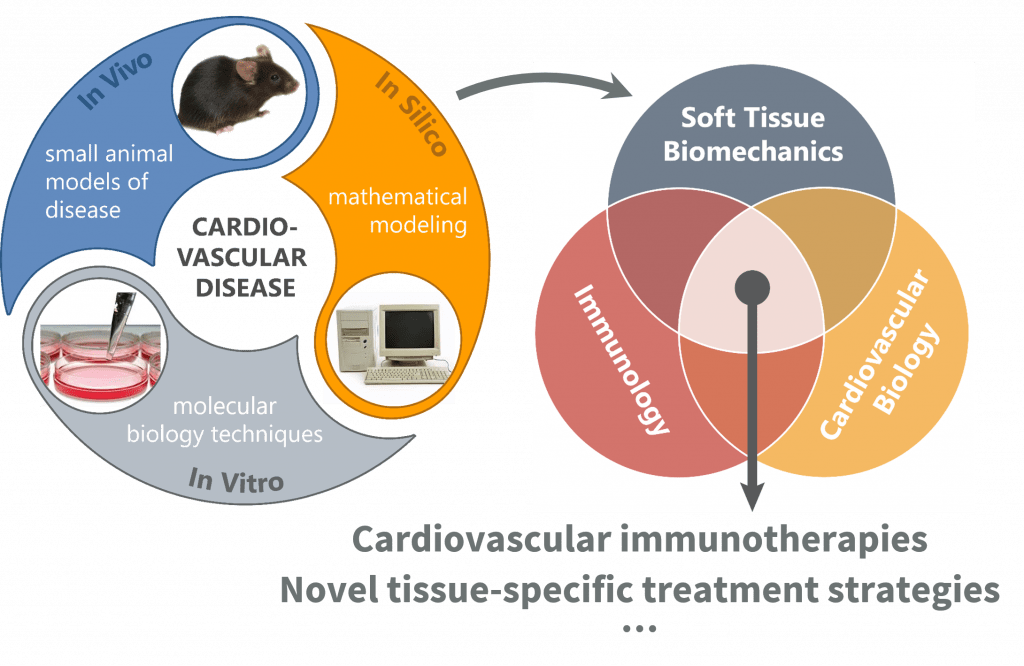Welcome to the Bersi Lab
We are located in the Department of Mechanical Engineering & Materials Science at Washington University in St. Louis. Our research is focused on soft tissue biomechanics and mechanobiology.
Using techniques that range from ex vivo tissue testing and mechanical characterization to in vitro cell culture and molecular biology, the ongoing research in the Bersi Lab is generally focused on understanding how alterations in a tissue’s mechanical environment can lead to changes in cellular and molecular activity that promote immune activation, tissue remodeling, and fibrosis. While focused primarily on cardiovascular disease, this multiscale approach has applicability to understanding injury and disease processes in multiple tissues and organ systems.
We aim to better define the intersection between soft tissue biomechanics, molecular biology, and immunology with the ultimate goal of evaluating tissue-specific immunotherapeutic treatment strategies.
